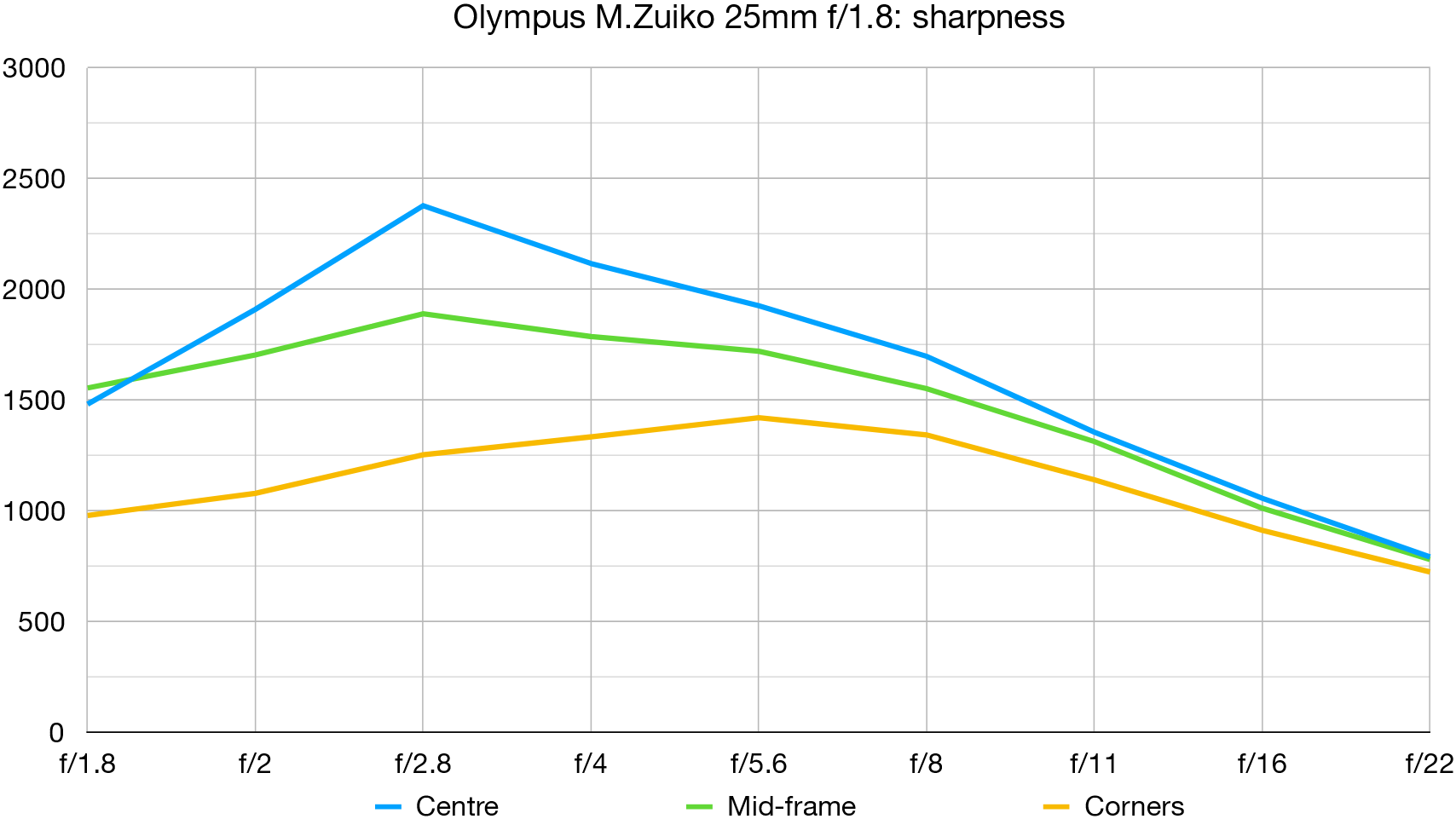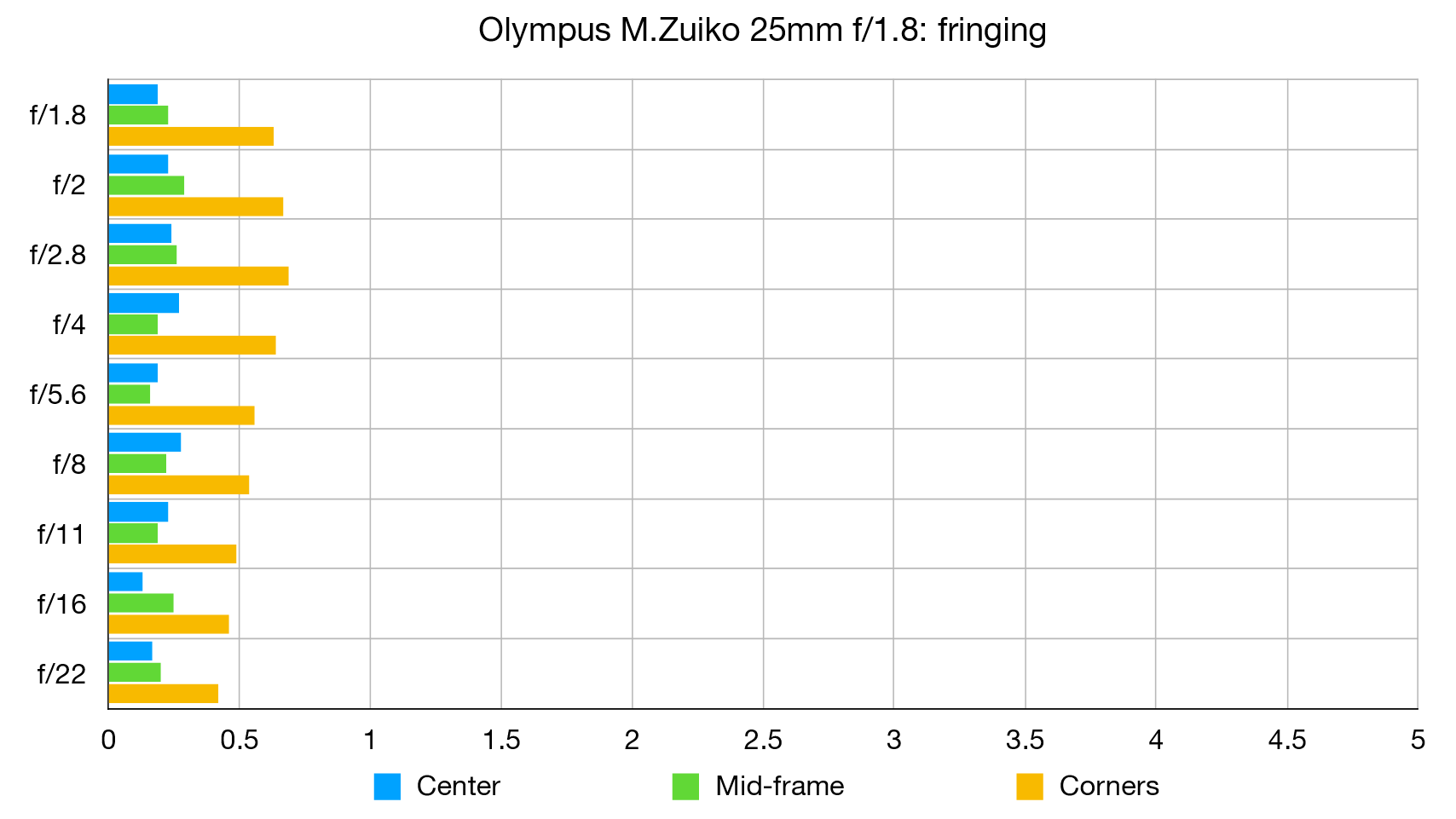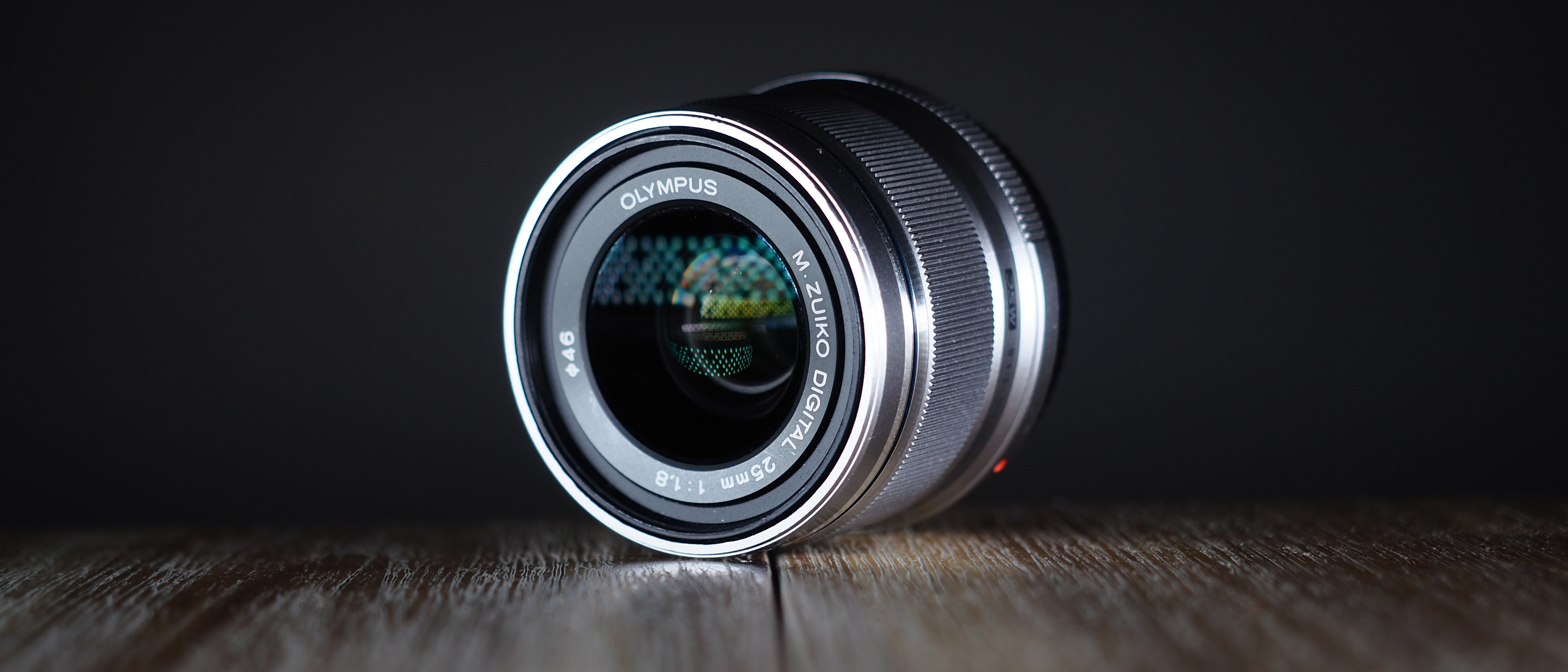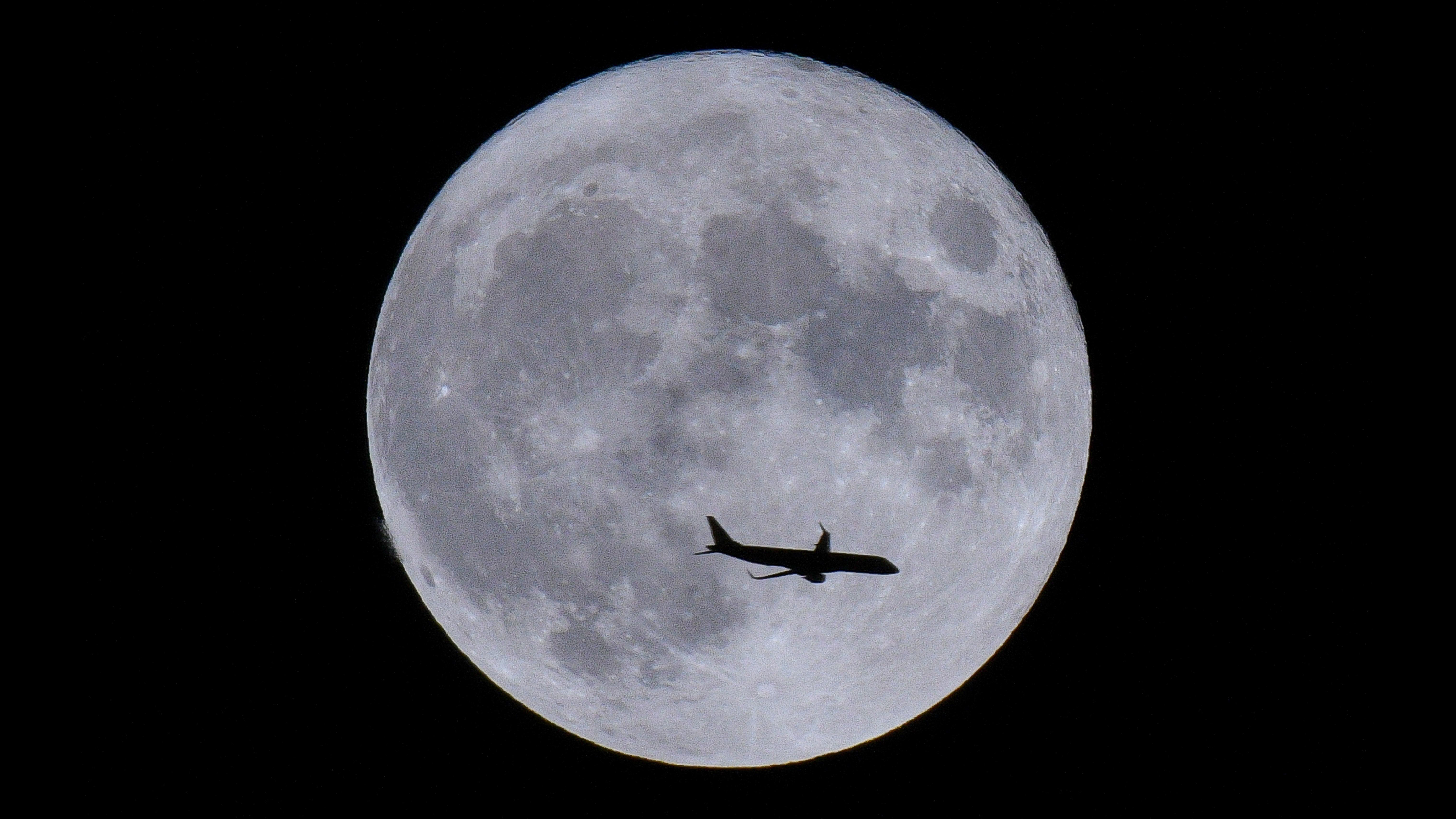Digital Camera World Verdict
Barely bigger than a pancake lens, this Olympus gives the same field of view as using a 50mm standard prime on a full-frame camera, along with a fast f/1.8 aperture. Available in black or shiny silver, it’s ideal as an unfeasibly compact and lightweight ‘nifty fifty’ for any Micro Four Thirds camera, taking full advantage of the 2x crop factor. Image quality and all-round performance are highly impressive, but it’s pretty pricey for an f/1.8 standard prime.
Pros
- +
Super-small and lightweight
- +
Standard field of view
- +
Fast f/1.8 aperture
Cons
- -
More distortion than some MFT lenses
- -
Pricey for a ‘standard prime’
Why you can trust Digital Camera World
The Olympus M.Zuiko 25mm f/1.8 has been replaced by the OM System M.Zuiko 25mm f/1.8 II. The new lens now boasts weather sealing and also includes a lens hood in the box, both of which are absent on the original Olympus lens. However, the optical formula and performance are the same. You can read my colleague James' full review for more information on the newer version of the lens.
Ask a full-frame photographer to choose just one prime lens and it would often be a 50mm, thanks to its entirely natural viewing perspective. Taking the 2x crop factor of Micro Four Thirds cameras into account, the Olympus M.Zuiko 25mm f/1.8 gives the same field of view. Sure, f/1.2 and f/1.4 lenses enable faster shutter speeds under low lighting conditions, and a tighter depth of field, but f/1.8 is also a favorite for keeping a reign on size, weight and expense.

Olympus M.Zuiko 25mm f/1.8: Specifications
Mount: Micro Four Thirds
Full-frame: No
Autofocus: Yes
Stabilization: No
Lens construction: 9 elements in 7 groups
Angle of view: 47 degrees
Diaphragm blades: 7
Minimum aperture: f/22
Minimum focusing distance: 0.24m
Maximum magnification ratio: 0.12x
Filter size: 46mm
Dimensions: 56x41mm
Weight: 136g
Olympus M.Zuiko 25mm f/1.8: Key features
The size and weight of this lens is among its key features. It measures just 58x42mm and weighs a mere 137g, making for a very discreet combination with small form-factor MFT camera bodies.
The modest f/1.8 aperture is a key ingredient in the downsized design. It’s two-thirds of a stop or a full stop slower than f/1.4 or f/1.2 lenses but most faster lenses are larger, heavier and around two or three times as expensive to buy.

Despite its relatively tiny build, the lens feels tough and well engineered. Indeed, it’s billed as a 'Premium' lens. It features MSC (Movie & Still Compatible) autofocus, which is quick for stills and enables smooth, virtually silent autofocus transitions when shooting movies. The electronically coupled manual focus ring is the only ‘large’ thing about the lens, making manual focusing comfortable and precise, with a very smooth action.
Unlike the much larger M.Zuiko 75mm f/1.8, this one doesn’t feature any Extra-low Dispersion glass but it does have two aspherical glass elements. The seven-blade diaphragm maintains a fairly well rounded aperture when stopping down a little from f/1.8.
Olympus M.Zuiko 25mm f/1.8: Performance
Despite ‘only’ having an f/1.8 aperture, the lens delivers very smooth bokeh. Sharpness is thoroughly excellent, even when shooting wide-open, while color fringing is entirely negligible. Barrel distortion can be a little noticeable and slightly worse than we’re used to from most MFT lenses, which take advantage of automatic in-camera correction. Even so, overall performance and image quality are deeply satisfying.

Olympus M.Zuiko 25mm f/1.8: Lab results
We run a range of lab tests under controlled conditions, using the Imatest Master testing suite. Photos of test charts are taken across the range of apertures and zooms (where available), then analyzed for sharpness, distortion and chromatic aberrations.
We use Imatest SFR (spatial frequency response) charts and analysis software to plot lens resolution at the center of the image frame, corners and mid-point distances, across the range of aperture settings and, with zoom lenses, at four different focal lengths. The tests also measure distortion and color fringing (chromatic aberration).
Sharpness:

Even wide-open at f/1.8, sharpness is exceptional across the entire image frame, right out to the extreme edges and corners. It only really drops off noticeably at the narrowest aperture of f/22, due to the normal effect of diffraction.
Fringing:

Both axial and lateral chromatic aberrations are absolutely negligible, the latter being hard to spot even at the corners of the frame.
Distortion: -0.87
The slight barrel distortion is unusual for an MFT lens, automatic in-camera correction normally all but eliminating any distortions.
Olympus M.Zuiko 25mm f/1.8: Verdict
Barely bigger than a pancake lens, this Olympus gives the same field of view as using a 50mm standard prime on a full-frame camera, along with a fast f/1.8 aperture. Available in black or shiny silver, it’s ideal as an unfeasibly compact and lightweight ‘nifty fifty’ for any Micro Four Thirds camera, taking full advantage of the 2x crop factor. Image quality and all-round performance are highly impressive, but it’s pretty pricey for an f/1.8 standard prime.
Note that this lens has been replaced by the newer OM System M.Zuiko 25mm f/1.8 II, which adds weather-sealing and also includes a lens hood.
Matthew Richards is a photographer and journalist who has spent years using and reviewing all manner of photo gear. He is Digital Camera World's principal lens reviewer – and has tested more primes and zooms than most people have had hot dinners!
His expertise with equipment doesn’t end there, though. He is also an encyclopedia when it comes to all manner of cameras, camera holsters and bags, flashguns, tripods and heads, printers, papers and inks, and just about anything imaging-related.
In an earlier life he was a broadcast engineer at the BBC, as well as a former editor of PC Guide.
- James ArtaiusEditor in Chief
You must confirm your public display name before commenting
Please logout and then login again, you will then be prompted to enter your display name.



